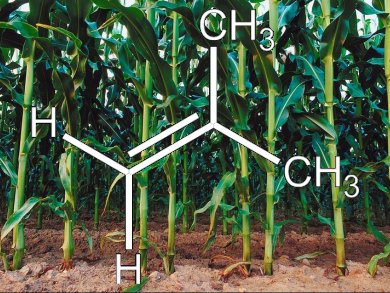As the availability of bio-ethanol has increased and its cost decreased, conversion of this bio-based feedstock to highly valuable fuels and chemicals has become an important research goal. Isobutene is of special interest because it is widely used as an intermediate for the production of a variety of industrially important products. Currently, it is obtained from catalytic or steam cracking of fossil feedstocks.
Yong Wang and colleagues, Washington State University, USA, have developed a new catalyst material that converts bio-ethanol into isobutene in a single step. The nanosized ZnxZryOz mixed oxide catalyst requires the presence of water, allowing the use of dilute bio-ethanol. This removes the need for purification which will keep costs lower and production times faster. Isobutene yields as high as 83 % have been reached, with acetone and hydrogen, both of interest as feedstocks, as byproducts.
- Direct Conversion of Bio-ethanol to Isobutene on Nanosized ZnxZryOz Mixed Oxides with Balanced Acid-Base Sites
J. Sun, K. Zhu, F. Gao, C. Wang, J. Liu, C. H.F. Peden, Y. Wang,
J. Am. Chem. Soc. 2011, 133 (29), 11096–11099.
DOI: 10.1021/ja204235v




